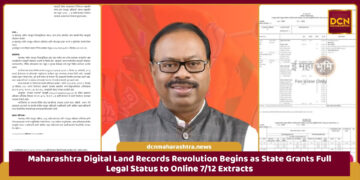Special Correspondent
Mumbai: The Maharashtra government is preparing to introduce a contentious new law—the Maharashtra Special Public Security Act, 2024—that critics warn could severely curb free speech and fundamental rights. The proposed legislation aims to penalize individuals or organizations for “unlawful activities,” a term broadly defined to include any act perceived as threatening public order, interfering with governance, or promoting dissent against the government.
The bill, labeled Legislative Assembly Bill No. 33 of 2024, seeks to grant authorities sweeping powers to crack down on activities deemed a risk to “public peace, tranquility, or established institutions.” Under the law:
Unlawful activities include acts that allegedly disrupt public order, interfere with government functions, promote “disrespect” for laws, or even verbally or visually criticize* authorities.
– “Unlawful organizations” are defined as groups accused of encouraging such activities, directly or indirectly.
– Penalties include up to 3 years in jail** or a ₹3 lakh fine for participating in meetings, donating to, or supporting such organizations.
Activists and civil society groups have slammed the bill as a tool to suppress dissent. RTI activist Vijay Kumbhar stated, “This law hands the government unchecked power to label anyone critical as ‘unlawful.’ It risks criminalizing free thought and dismantling democratic values.
Key concerns include:
1. Vague Definitions: Terms like “threatening public order” or “promoting disrespect” are open to misuse, potentially targeting activists, journalists, or opposition voices.
2. Bypassing Judiciary: The bill allegedly allows the government to overstep judicial oversight, weakening the independence of courts.
3. Silencing Opposition: Peaceful protests, political criticism, or even social media posts could be branded as “unlawful.”
While the government claims the law aims to curb violence, terrorism, and anti-national activities, opponents argue it mirrors draconian colonial-era laws. The bill is currently open for public feedback until April 1, 2025, but civil liberties groups demand its withdrawal, calling it a threat to India’s constitutional ethos.
The proposed law reignites debates about balancing national security with civil freedoms. Critics stress that conflating legitimate dissent with criminal activity undermines democracy, while the government insists on stricter measures to combat “rising threats.” With Maharashtra elections looming, the bill’s fate could shape the state’s political and social landscape for years to come.
















